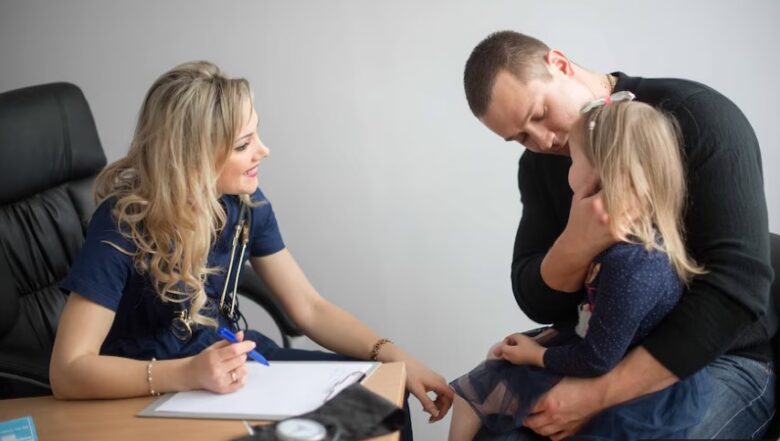Child custody disputes can be some of the most emotionally charged experiences for any parent. Questions about who gets custody, how decisions will be made, and what’s best for the child often dominate the conversation.
Many parents worry they’ll lose time with their children, get treated unfairly by the court, or make costly mistakes.
In such high-stakes situations, it’s natural to wonder if hiring child custody lawyers is the right move. Some assume they must hire one.
Others believe they can handle everything themselves. It’s important to know what a lawyer can do—and what they can’t.
Do You Legally Need a Lawyer?

Source:freepik.com
No law mandates that parents must hire child custody lawyers during custody disputes. Courts across the country allow individuals to represent themselves, a process known as “pro se” representation.
For some, this might seem like an empowering way to take control of a personal and emotional matter without getting entangled in legal expenses.
However, handling a custody case without legal help comes with both advantages and significant drawbacks.
Pros of self-representation:
- Legal fees can be avoided, which is important for parents on a tight budget
- Every decision stays in your hands—no need to rely on outside opinions
- Parents are often the ones who know their child’s routines, emotional needs, and best interests the most
Cons of self-representation:
- Court procedures involve strict rules, formal deadlines, and detailed documentation
- Emotional stress during a custody battle can make it difficult to remain calm and think clearly
- Mistakes in paperwork, missed deadlines, or improper court behavior can result in delays or negative outcomes
Judges expect parents to present evidence, question witnesses, and argue the law, all of which require preparation most people don’t have
Legal cases often take unexpected turns. A custody agreement might seem simple at first, but unexpected objections, accusations, or procedural twists can turn a manageable case into a legal nightmare.
Without child custody lawyers guiding the process, small mistakes can snowball into long-term consequences.
Self-representation might be reasonable in cases where both parents are cooperative, communication remains respectful, and the desired outcome is already agreed upon.
Even then, it’s wise to seek at least a consultation with a lawyer before finalizing any legal agreement.
Once things get tense, or if the other parent brings a lawyer into the picture, trying to handle everything alone becomes a gamble—one that could affect your time with your child.
When to Consider Settling Without a Lawyer
Some custody cases can be resolved without child custody lawyers, especially when both parents are on relatively good terms and have similar parenting goals.
Consider settling on your own if:
- You and the other parent communicate well and trust each other
- Both parties agree on physical and legal custody, visitation schedules, holidays, and decision-making responsibilities
- Your state encourages or requires mediation before litigation (like North Carolina)
- You’re confident in your ability to handle legal forms, filings, and court expectations
Settling amicably can reduce stress and protect children from being placed in the middle of a prolonged battle.
However, even in peaceful negotiations, consulting a lawyer briefly for a second opinion may still be smart.
When You Should Hire a Lawyer

Source:freepik.com
Custody battles don’t always begin with a fight, but when conflict escalates or serious complications arise, hiring child custody lawyers becomes more than just a suggestion—it becomes a necessity.
Certain situations carry legal risks that can’t be managed effectively without proper representation. Ignoring those warning signs can lead to unfavorable outcomes, reduced parental rights, or even limited access to your child.
Consider hiring a lawyer in the following situations:
The other parent already has legal representation
Walking into a custody hearing without a lawyer while the other parent shows up with one is like showing up to a boxing match without gloves.
An experienced attorney knows how to navigate courtroom procedures and can use legal technicalities to build a stronger case. Without someone on your side, you risk being outmatched before your case even begins.
There’s a history of domestic violence, threats, or substance abuse
Any custody case involving violence or addiction will be scrutinized by the court.
A lawyer can help gather and present evidence, protect you during hearings, and request safeguards like supervised visitation or protective orders. Attempting to handle such issues alone may place both you and your child in an unsafe position.
Your ex has relocated or plans to move out of state
Interstate custody matters can quickly become legally complex. Jurisdiction disputes, travel arrangements, and differing state laws all come into play.
A lawyer can help ensure you’re not blindsided by relocation plans that impact your custody rights or parenting schedule.
You have a criminal record or a troubled history
Past mistakes can resurface in family court, even when irrelevant to your current ability to parent.
A skilled attorney can work to reframe your past, present positive evidence of your current role in the child’s life, and block attempts by the other side to unfairly weaponize old charges.
You disagree with the findings of a custody evaluator
Court-appointed evaluators often carry weight in the judge’s decision. If you feel the report misrepresents you or your relationship with your child, legal support becomes essential.
Lawyers know how to challenge evaluations respectfully, point out inconsistencies, and push for a second opinion if necessary.
How a Lawyer Can Help

Source:freepik.com
Child custody lawyers can relieve much of the stress and confusion that comes with navigating custody disputes. Legal procedures are often complicated, full of technical requirements and strict timelines.
A misstep could delay your case or harm your chances. Having an experienced professional in your corner can prevent costly errors and keep your case on track.
A custody lawyer doesn’t just push papers—they bring strategy, preparation, and calm to a situation that often feels overwhelming.
Knowledge of local court systems, specific judges’ tendencies, and state custody laws allows a lawyer to build a case with intention and clarity.
Parents without representation often miss small but significant details that can impact final outcomes.
Here’s what child custody lawyers can do for you:
- Handle all the paperwork, court filings, and legal deadlines without error
- Prepare you for mediation sessions, hearings, or full trials by rehearsing responses and organizing evidence
- Speak for you in court when emotions run high or when it’s best to avoid direct confrontation with your ex
- Ensure that your parental rights are clearly presented and not dismissed or weakened by opposing arguments
- Craft a strategy tailored to your exact legal environment—some counties or judges place greater weight on specific factors like co-parenting cooperation or school stability
Beyond tasks and documents, lawyers offer peace of mind. They allow you to focus on your child instead of court formalities.
When you’re exhausted or anxious, they stay focused. When your co-parent’s attorney tries to push boundaries, they push back.
The Bottom Line
Not every custody dispute requires child custody lawyers, but many can benefit from their support. Realistic evaluation of your own situation—your communication with the other parent, the legal complexity, and the emotional climate—can guide your next steps.
Think carefully about what’s truly best for your child. Sometimes, peace and cooperation win the day. Other times, legal muscle becomes essential. Either way, your child’s well-being should always come first.




